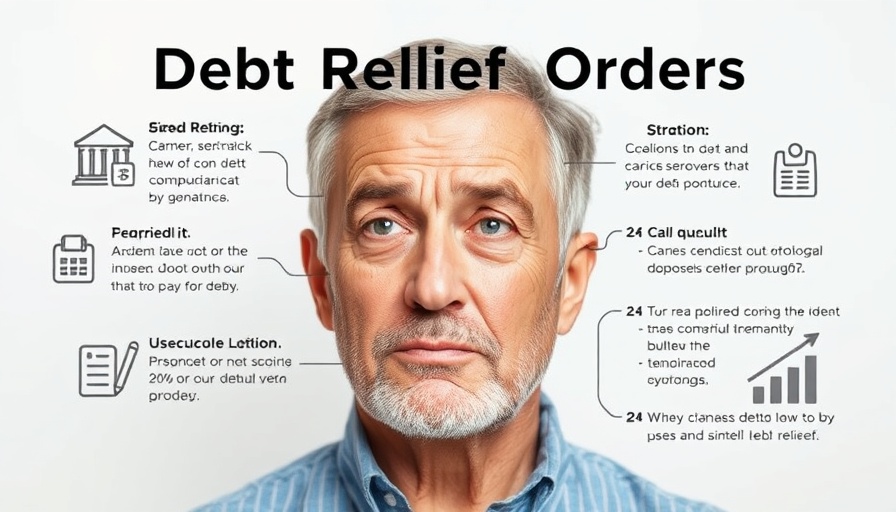
Understanding the Basics of Debt Relief Orders
If you're one of the many UK residents grappling with financial stress, a Debt Relief Order (DRO) could be the lifeline you need. Unlike bankruptcy, a DRO allows individuals with little disposable income and no valuable assets to write off their debts, giving them a much-needed fresh start. According to recent guidance, this low-cost alternative can offer significant benefits, but it’s crucial to understand both the pros and cons.
In 'The Pros and Cons of Debt Relief Orders Explained,' the topic dives into critical insights about DROs, prompting deeper analysis on effective financial solutions.
What Exactly is a Debt Relief Order?
A Debt Relief Order is designed for those who owe less than £30,000 (or £20,000 in Northern Ireland) and possess few assets. It's ideal for individuals earning under £75 a month disposable income in England and Wales, or under £50 in Northern Ireland. The process can be initiated through the UK’s insolvency service, and if approved, creditors can no longer pursue payment during a twelve-month moratorium period. The idea is simple; if your financial situation remains unchanged after a year, your debts are erased, paving the way for a healthier financial future.
Pros and Cons: Weighing Your Options
Like any financial decision, opting for a DRO comes with its set of advantages and disadvantages. On the plus side, a DRO is a fast and affordable way to escape overwhelming debt without the stigma of bankruptcy. Your creditors must cease contact, providing the relief many financially burdened individuals desperately need.
However, the flip side can be daunting. A DRO will impact your credit rating for up to six years, limiting your access to future credit. Plus, not all debts are covered in a DRO – certain obligations such as student loans and court fines remain your responsibility. Furthermore, if your financial situation improves during the moratorium period, your eligibility can change, leaving you with lingering debts.
Real-Life Stories: The Human Side of Debt Relief
Consider Sarah, a single mother from Liverpool who found herself overwhelmed by credit card debts after losing her job. Initially hesitant about the stigma surrounding a DRO, she took the plunge after watching informative videos that explained the process. Within weeks, she received approval, allowing her to breathe again as creditors ceased their persistent calls. After the year, with her debts discharged, Sarah was thrilled to start anew, focusing on her family’s future.
Expert Advice: Taking the Next Steps
Jim Smith, a debt counselor with extensive experience in financial literacy, urges individuals to consider all debt solutions before deciding. “Each person's financial situation is unique. A DRO might be beneficial, but it’s essential to explore other options like budgeting or debt consolidation.” He emphasizes the importance of speaking to a financial adviser or using online tools to assess your circumstances critically.
The Road Ahead: Making Informed Financial Decisions
Ultimately, knowledge is power. Whether considering a Debt Relief Order or another solution, being informed will equip you to make the best choices for your future. The landscape of financial assistance is vast, with numerous strategies that can aid you in achieving stability.
Get Started Towards Financial Stability Today!
If you’re struggling with debt and wondering if a Debt Relief Order is right for you, consider reaching out to financial organizations or using online assessment tools for personalized advice. Your journey toward stability starts with informed decisions. Take the first step today!
 Add Row
Add Row  Add
Add 




Write A Comment